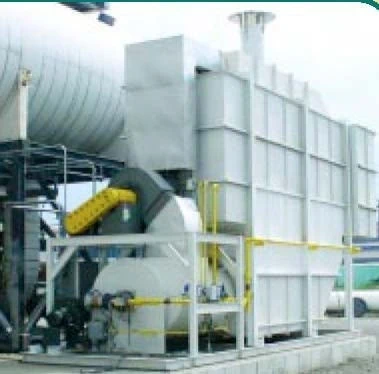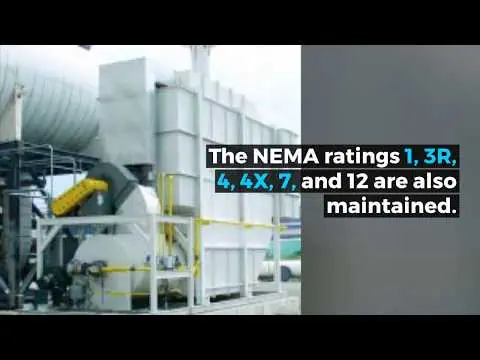Thermal fluid heaters and hot oil systems are used in industrial applications for safe, consistent, and reliable indirect heating and cooling. In a closed-loop system, the thermal fluid circulates throughout the system, maintaining a steady heat supply. Also sometimes referred to as a hot oil heating system or a DOWTHERM™ heating system, these high-efficiency systems are found in a variety of applications in many industries, including:
- Asphalt
- Chemical
- Food industry
- Laundry
- Petrochemical
- Pharmaceuticals
- Plastics
- Process equipment
- Specialty paper
- Textiles
- Wood
DOWTHERM™ thermal fluid is an excellent heat transfer medium for closed-loop heating systems because it has a high flash point and low viscosity, which results in less fouling of heat exchangers. More than that, DOWTHERM™ thermal fluid is thermally stable over a wide temperature range, meaning that it can be used for heating and cooling applications.
Thermal Fluid Systems, Inc. has extensive experience in designing and supplying high-efficiency thermal fluid heating systems. Our team of engineers will work with you to custom-design thermal fluid systems that meet the specific needs of your application. We offer a full range of thermal fluid heaters, including electric, gas-fired, and waste-fueled models. We also offer a complete line of hot oil pumps, valves, controls, and accessories.
Thermal Fluid Heating System Design
Thermal fluid systems are available in a variety of configurations to meet the needs of different applications. Some thermal fluid systems are designed for use in hazardous environments, such as those that contain flammable or combustible liquids. Other thermal fluid systems are designed for cleanroom applications, such as those used in the semiconductor industry.
Thermal fluid systems offer many benefits over other methods of heating. They are more efficient and safer than other heating methods.
At Thermal Fluid Systems, Inc., our high-efficiency thermal fluid heater design uses a three-pass configuration. Each carbon steel, high-efficiency thermal fluid heating system includes a three-pass dual helical coil heat exchanger, custom-designed isolation valves, a pump, a strainer, a degasser, a burner, an expansion tank, a temperature blocking vessel, and safety controls. You may also choose from additional options such as a drain tank and secondary heating and cooling controls.
We design each high-efficiency DOWTHERM™ heating system to customer specifications following rigorous quality standards, including:
- American Society of Mechanical Engineers (ASME)
- CSA/CGA
- NEMA
- NFPA
- United States Coast Guard (USCG)
- American Bureau of Shipping (ABS)
Based on the application and process needs, our thermal fluid heaters may be powered by:
- Electricity
- Natural gas
- Propane
- Biodiesel
- Fuel oil numbers 2, 4, and 6
- Bunker C oil
- Waste liquid and gas products
A variety of NEMA ratings are also available, including 1, 3R, 4, 4X, 7, or 12.
Types of Thermal Fluid Heating Systems
Thermal fluid heating systems can operate on a variety of fuel sources. There are three main thermal fluid heating system types: gas (or liquid fuel), electric, and waste fuel. The right design for your application depends on factors such as:
- Efficiency
- Thermal stability over a range of temperatures
- Equipment size
- System adaptability
- Physical properties such as the freezing, flash, and fire points; vapor pressure; viscosity; and rate of heat transfer
Each choice of thermal fluid system fuel has distinct advantages and disadvantages.
Gas Fired Systems
Gas-fired thermal fluid systems are heating systems that use natural gas as a fuel source. These systems are typically used in industrial and commercial applications and can provide heat for various purposes, including space heating, process heating, and thermal storage. Gas-fired thermal fluid systems typically consist of a gas burner, a heat exchanger, a thermal fluid pump, and a thermal fluid storage tank. The gas burner is used to heat the thermal fluid, which circulates through the heat exchanger. The thermal fluid pump circulates the fluid through the system, and the thermal fluid storage tank provides a reservoir of thermal fluid for the system.
Since it burns efficiently, natural gas produces fewer harmful emissions. Gas-operated heating systems also take less energy to run compared to the heat they produce, making them operationally efficient. However, natural gas prices can fluctuate widely, resulting in a cost disadvantage.
Electric Systems
Electric systems can be used where natural gas is unavailable and may be cheaper to operate in areas with low-cost electricity. They also convert almost all of the input energy directly to heat for the process.
Electric thermal fluid heaters are an efficient and cost-effective way to heat thermal fluids. They use electricity to generate heat, which is then transferred to the thermal fluid. This type of heater is 100% efficient, meaning all the energy used to generate heat is transferred to the thermal fluid. Electric thermal fluid heaters are also safer than other types of heaters, as they do not use combustion to generate heat.
A high-efficiency hot oil heating system design typically does not need an operator on-site, even though it can reach much higher temperatures than water. The disadvantage is performance and cost across the different temperature ranges.
Waste Fueled Systems
Waste-fueled thermal fluid systems are an efficient and environmentally friendly way to generate heat. These systems use waste fuels such as used oil to produce heat energy. The thermal fluid heats a transfer medium, which in turn transfers the heat energy to the desired application.
There are numerous advantages of using biomass energy for heating. Waste-fueled systems are efficient, less expensive to operate, and eco-conscious. The energy is renewable and saves the waste from other processes from being dumped in landfills. Waste-fueled systems also help to reduce dependence on the electrical grid, further improving their sustainability benefits. These systems are ideal for assisting businesses in meeting goals for green energy.
They are more efficient than direct combustion systems, generating more heat while using less fuel. This makes them more environmentally friendly and less expensive to operate. Waste-fueled thermal fluid systems are also safer than other heating systems because the thermal fluid does not come into contact with the flame. This reduces the risk of fire and explosions. They are available in a variety of sizes and configurations to meet the needs of any application.
High-Efficiency Thermal Fluid Heating Systems from Thermal Fluid Systems, Inc.
Thermal fluid systems are an essential part of many industrial and commercial operations. They are used to heat materials and maintain thermal equilibrium in a variety of settings. Thermal fluid systems use a closed loop system to circulate a heating fluid through a series of heat exchangers. The thermal energy from the fluid is transferred to the material or object being heated. Thermal fluid systems are used in a variety of industries, including food and beverage processing, pharmaceutical manufacturing, and petrochemical refining.
For over a quarter of a century, Thermal Fluid Systems, Inc. has provided high-efficiency thermal fluid heating systems to process industries. Our process heaters can be operated indoors or outdoors. They have an output range of 0.5 to 50,000,000+ BTU/hour and a lower heating value efficiency of up to 90% or more.
We are pleased to provide end-to-end service for high-efficiency DOWTHERM™ heating systems, from design and engineering to fabrication and service. Our on-site technical service and support department is here to support all the equipment we manufacture. To find out more about our capabilities or products, contact us or request a quote.





